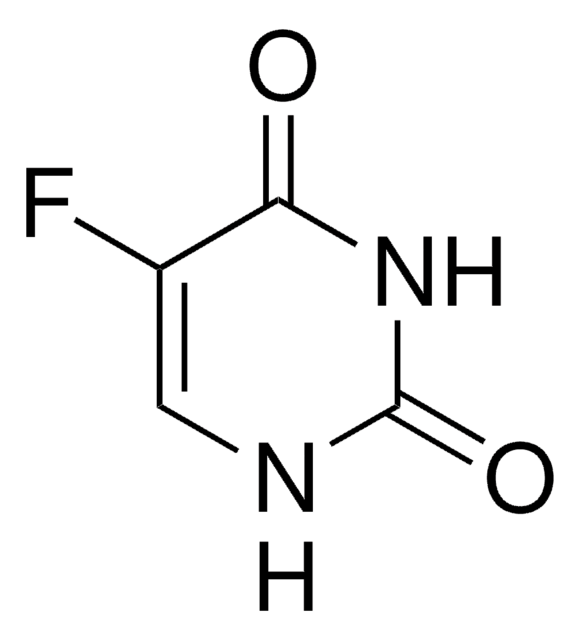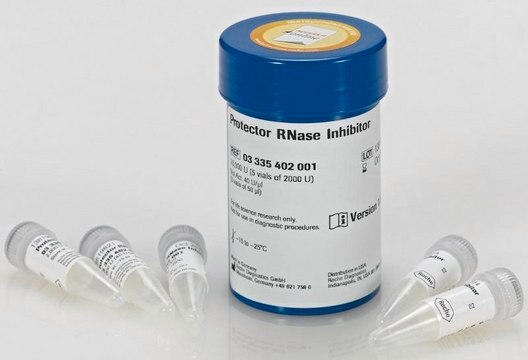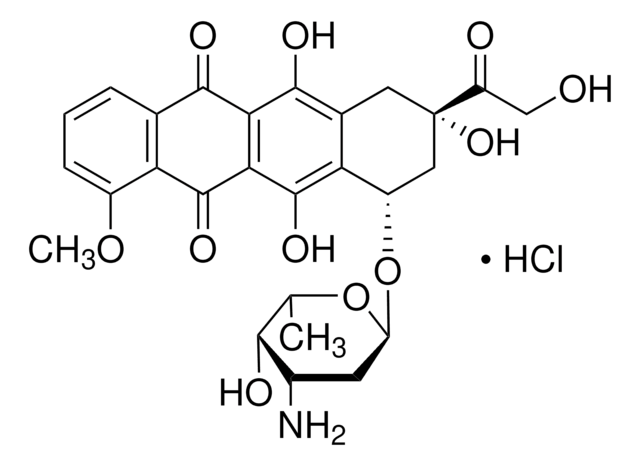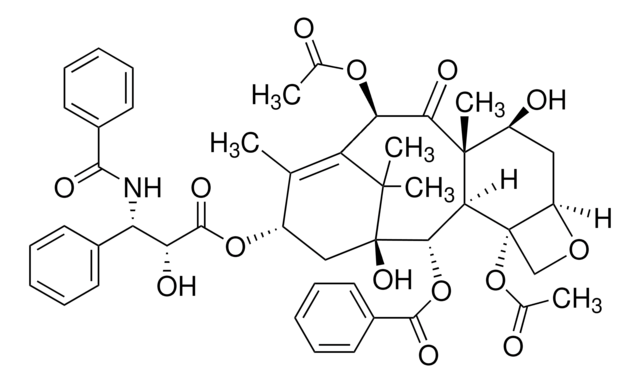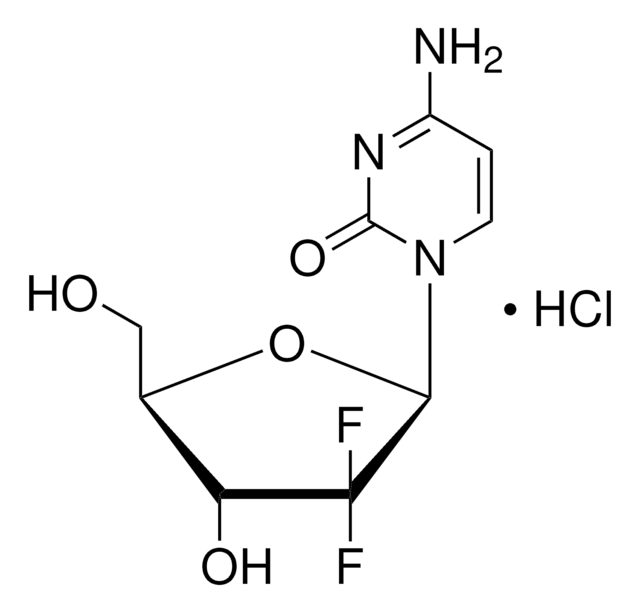P4394
cis-Diammineplatinum(II) dichloride
≥99.99% (trace metal analysis), crystalline, anti-neoplastic agent drug
Synonym(s):
cis-Dichlorodiammine platinum(II), cis-Platinum(II) diammine dichloride, Cisplatin
About This Item
Recommended Products
product name
cis-Diammineplatinum(II) dichloride, crystalline
form
crystalline
Quality Level
color
yellow
mp
270 °C (lit.)
antibiotic activity spectrum
neoplastics
mode of action
DNA synthesis | interferes
originator
Corden
SMILES string
N.N.Cl[Pt]Cl
InChI
1S/2ClH.2H3N.Pt/h2*1H;2*1H3;/q;;;;+2/p-2
InChI key
LXZZYRPGZAFOLE-UHFFFAOYSA-L
Looking for similar products? Visit Product Comparison Guide
Application
- in cell viability measurement in cochlear explants
- in the inhibition of cell proliferation and chemosensitivity in ovarian cancer cell lines
- in MTT [3-(4,5-Dimethylthiazol-2-yl)-2,5-Diphenyltetrazolium Bromide] cell viability assay in oral squamous cell carcinoma
Biochem/physiol Actions
Features and Benefits
Storage and Stability
signalword
Danger
Hazard Classifications
Acute Tox. 2 Oral - Carc. 1B - Eye Irrit. 2 - Resp. Sens. 1 - Skin Irrit. 2 - Skin Sens. 1 - STOT SE 3
target_organs
Respiratory system
wgk_germany
WGK 3
flash_point_f
Not applicable
flash_point_c
Not applicable
Certificates of Analysis (COA)
Search for Certificates of Analysis (COA) by entering the products Lot/Batch Number. Lot and Batch Numbers can be found on a product’s label following the words ‘Lot’ or ‘Batch’.
Already Own This Product?
Find documentation for the products that you have recently purchased in the Document Library.
Customers Also Viewed
Articles
We presents an article on ABC Transporters and Cancer Drug Resistance
Related Content
Apoptosis, or programmed cell death (PCD), is a selective process for the removal of unnecessary, infected or transformed cells in various biological systems. As it plays a role in the homeostasis of multicellular organisms, apoptosis is tightly regulated through two principal pathways by a number of regulatory and effector molecules.
n proliferating cells, the cell cycle consists of four phases. Gap 1 (G1) is the interval between mitosis and DNA replication that is characterized by cell growth. Replication of DNA occurs during the synthesis (S) phase, which is followed by a second gap phase (G2) during which growth and preparation for cell division occurs. Together, these three stages comprise the interphase phase of the cell cycle. Interphase is followed by the mitotic (M) phase.
Our team of scientists has experience in all areas of research including Life Science, Material Science, Chemical Synthesis, Chromatography, Analytical and many others.
Contact Technical Service
